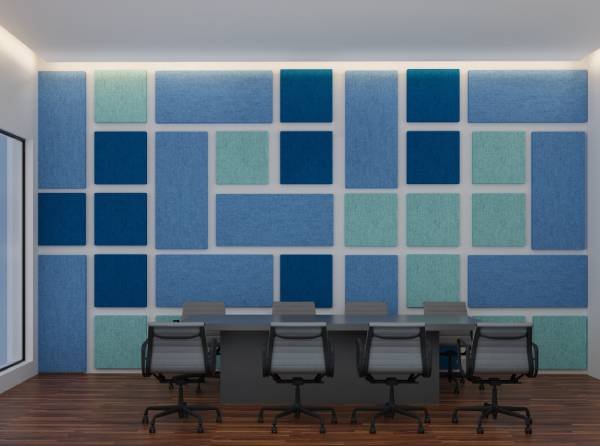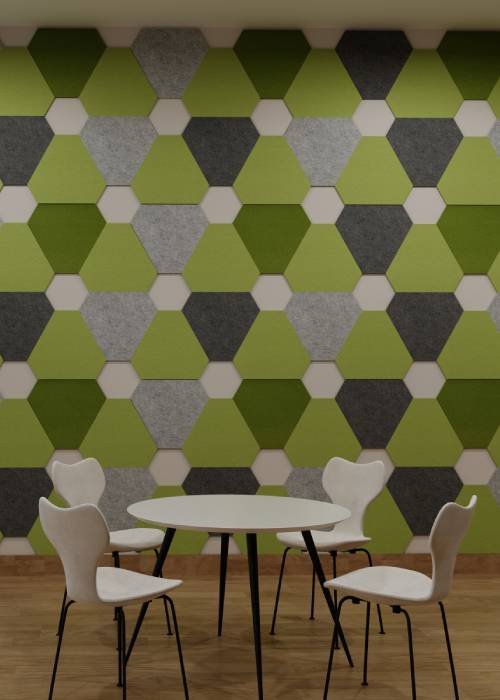Acoustic boards help lessen undesirable reflected sound in any room...
Since its introduction into the workplace a few years ago, acoustic panels have grown in popularity. Acoustic panels are used to reduce noise pollution in restaurants, reception rooms, and (more commonly) workplaces. They are commonly employed to decrease, rectify, or absorb noise pollution in loud locations. Shapes, fixes, colours, dimensions, and other options are available. Their major goal, whether placed on walls, hung, or affixed to the ceiling, is to decrease sound levels. They may, however, provide a sense of flair to a workstation.


Acoustic insulation, which is generally done by installing solid boards at the time the structure is erected, can minimise echos and sound pollution coming from outside or from one room to another. As a result, acoustic panels are not the best choice for insulating rooms that are subjected to noise pollution from the outside. Their primary function is to absorb sound from the room in issue.
Problems: Sound reverberation might be caused by the building’s construction materials, such as glass, concrete, or metal. It might also be a result of a lack of furnishings.
Correcting sound reverberation in a space can enhance auditory and health comfort. With the rise of openspaces, sound concerns in professional spaces are becoming more prevalent.
The major benefit of enhancing the acoustics of a space is that it improves the inhabitants’ well-being and acoustic comfort. When a room’s echo or sound resonance is too powerful, acoustic panels are utilised.
This might be because to the building’s construction elements (glass, concrete, or metal), or it could simply be because the décor is too simple.
Sound that echoes might provide the appearance of a distracting background noise. Because the loudness of the sound has increased. Excessively high resonance rooms cause irreversible loss of intelligibility, causing fatigue and lack of focus in its inhabitants.
If done correctly, acoustic therapy is immediately effective regardless of the location in question (following a correct assessment). Please do not hesitate to contact us if you require further information.
Depending on the needs, the setup will change. In a meeting room, for example, acoustic panels will be installed differently than in an open-plan workplace. Acoustic panels can be installed in a variety of positions depending on the source of noise pollution and the layout of the area.
A sound wave is multidirectional, meaning it travels across a room and towards all of the objects in it. Sound waves impact everything they come into contact with, including walls, ceilings, furniture, and people. When a sound wave collides with an item, some of it passes through it and out the other side, while some are bounced off and absorbed. The purpose of acoustic panels and acoustic components is to enhance the amount of sound that is absorbed in order to lessen the intensity and echo of sound waves that strike them.
Aside from acoustic treatment, acoustic panels may serve a variety of purposes. They can be utilised to improve space structure or merely for aesthetics.
As previously stated, acoustic panels may help improve a room’s aesthetic look. They may be customised and tailored to any company’s spirit and colours. Before selecting the ideal location on your wall, ceiling, or in the middle of the room, you may pick from a printed, single-color, or mottled finish, various shapes and colours, with or without a frame, and even adding lights.
Acoustic boards help lessen undesirable reflected sound in any room...
Acoustic boards help lessen undesirable reflected sound in any room...
Acoustic boards help lessen undesirable reflected sound in any room...
WhatsApp us